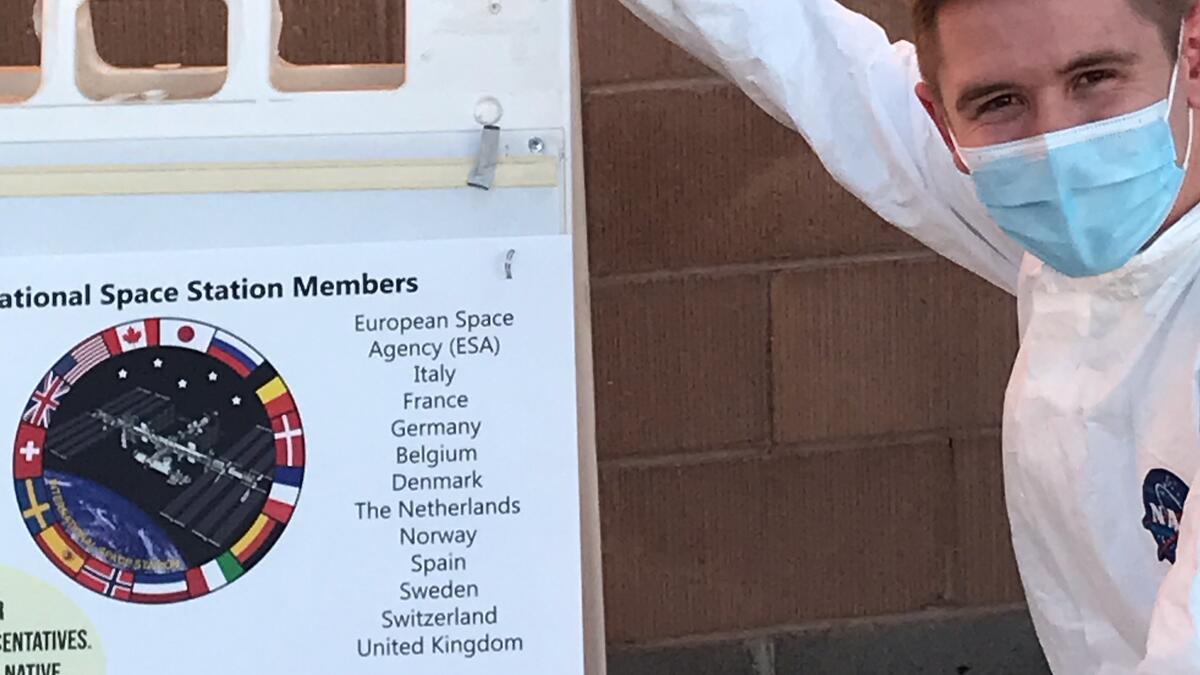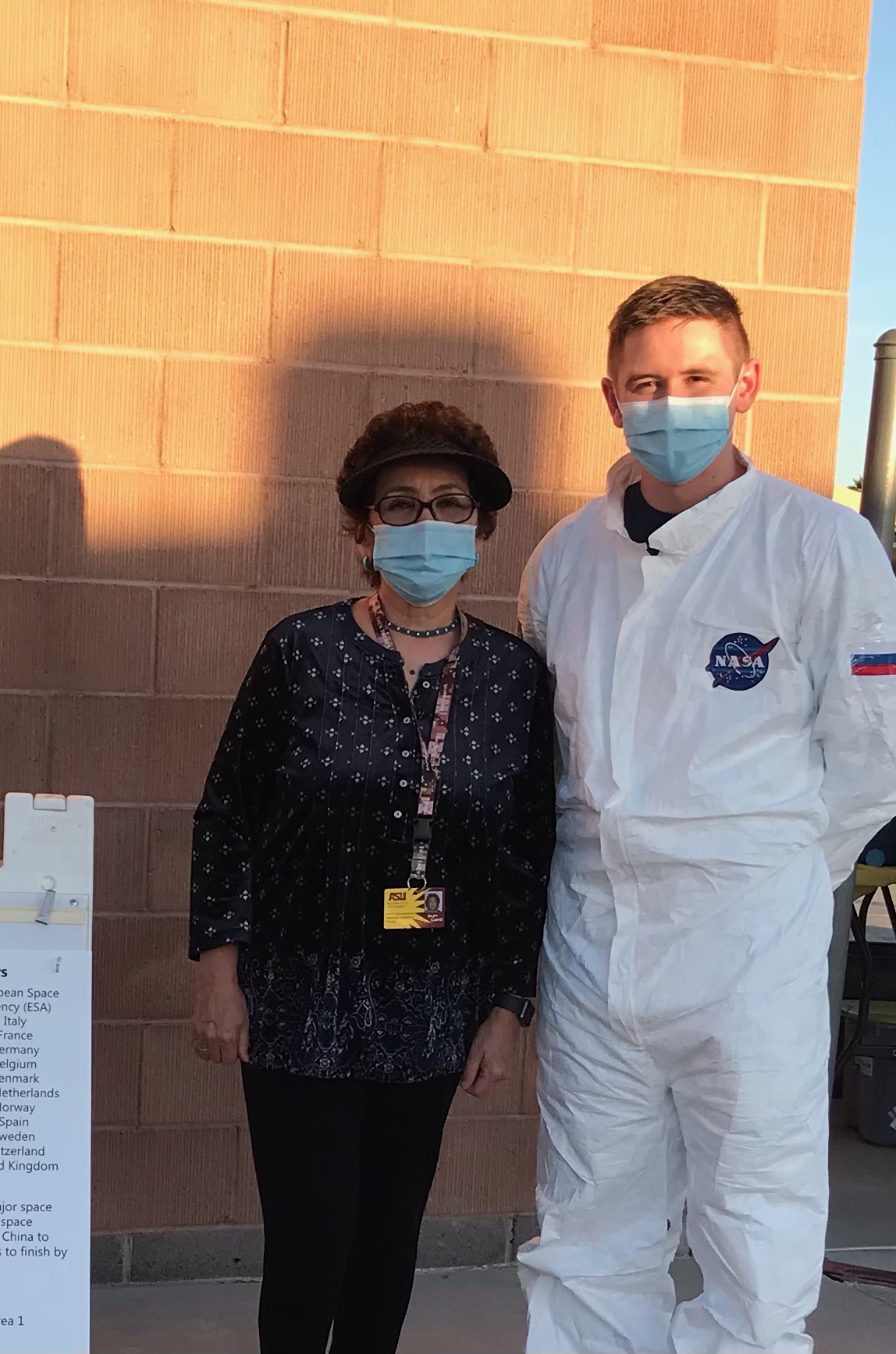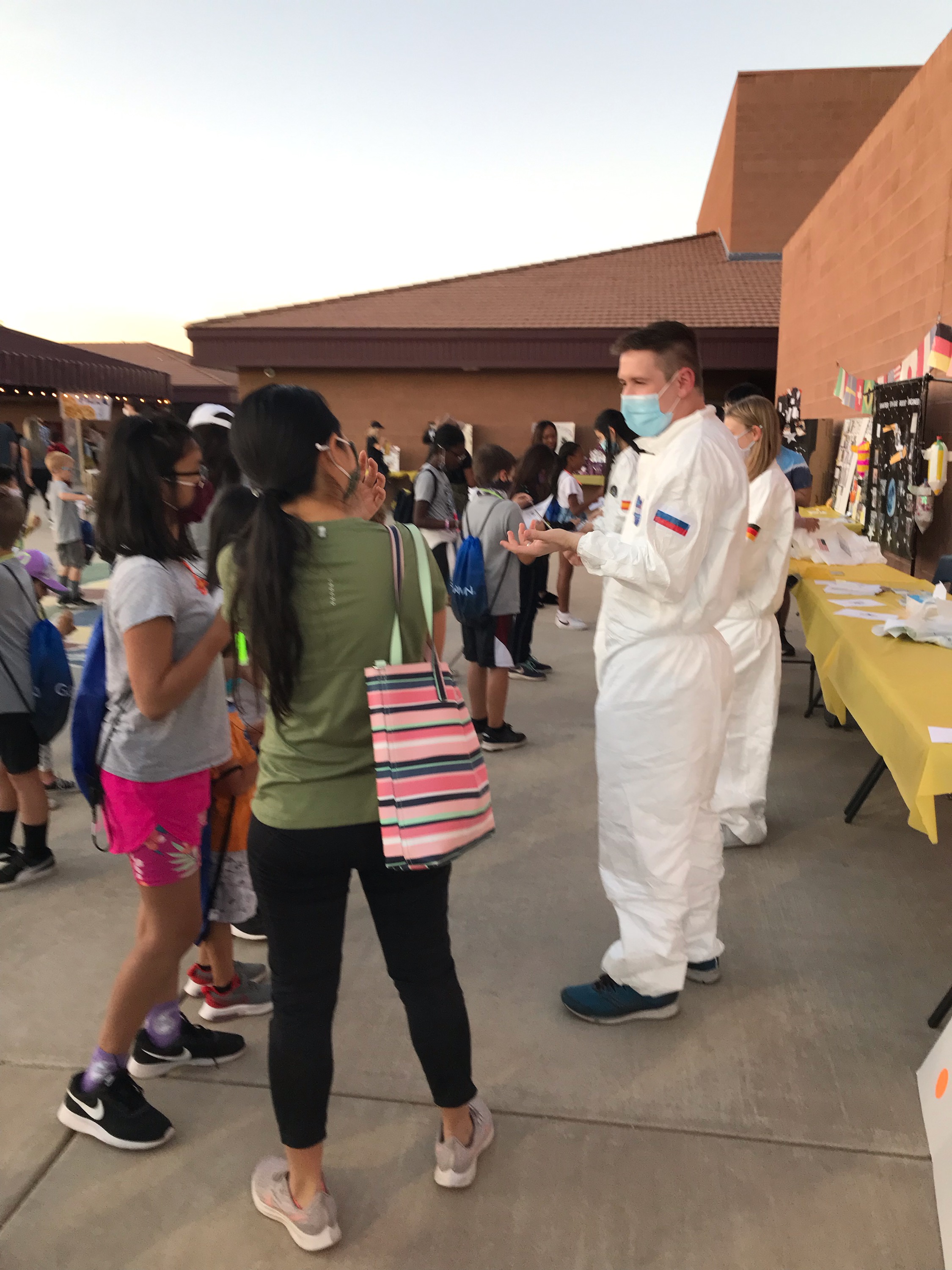ASU Russian lecturer, student prepare kids to chat with astronauts

ASU senior Eli Fox, who is majoring in Russian, recently taught common Russian greetings to hundreds of elementary school students in Chandler, Arizona, who were preparing for a conversation with astronauts aboard the International Space Station.
Earlier this semester, Senior Lecturer in Russian Saule Moldabekova Robb and one of her students were invited to teach Russian phrases to local elementary school students preparing for a ham radio call with the International Space Station.
The students attend Tarwater Elementary School in Chandler, Arizona, one of seven schools nationwide chosen to contact the space station this year.
The school had originally applied for the honor and been selected last year, but the conversation had to be canceled when school campuses closed due to the pandemic.
The school’s students prepared for the conversation by brainstorming questions to ask the astronauts. Eventually, the list was narrowed down to the best questions, and 10 students were selected to speak directly with the astronauts as the rest of the student body listened in.
These calls require a significant amount of calculation to ensure the proper connection is made and sustained; the ISS is overhead for only about 10 minutes or so at a time before it drops below the horizon and signal is lost.
ASU senior Eli Fox, who is majoring in Russian, accompanied Moldabekova Robb to Tarwater after being invited by one of the school's teachers.
The experience was good preparation for Fox's future career, he said — after graduation, he plans to earn a TEFL (teaching English as a foreign language) certification and teach English in Russian-speaking countries. The certification will allow him to teach anywhere in the world, but his goal is to continue his personal language learning and become fully fluent in Russian.
Senior Lecturer in Russian Saule Moldabekova Robb and Russian senior Eli Fox.
The road to mastery of a language begins with learning some of the common words and phrases Fox instructed the students on how to say in Russian, such as “Здравствуйте” (hello) and “До Свидания” (goodbye).
“Our role was to teach simple Russian greetings to the elementary students to honor the international relationship that the U.S. and Russia have at the International Space Station,” Fox said.
When Tarwater was chosen for this honor, the school’s staff did not know which astronauts would be available to speak to their students. At the time of the call, there were seven people on board the International Space Station: three astronauts from the U.S., one from Japan, one from France and two cosmonauts from Russia.
The students ended up only getting to speak with U.S. astronaut Shane Kimbrough, who has since returned to Earth. But it was important for them to prepare to speak with any of the available ISS personnel.
Moldabekova Robb and Fox said that even though the students didn’t get to practice their newly learned Russian phrases with the Roscosmos cosmonauts, they never know when that language familiarity might come in handy. It also demonstrates for students at a young age the opportunities that language learning can provide.
“By reaching out to the community, we can activate the imaginations of future students, giving them a vision for future travel and employment prospects,” Moldabekova Robb said.
Russian senior Eli Fox speaks with students at Tarwater Elementary School in Chandler, Arizona.
She noted that it is easier to learn a new language the younger you start, when your brain is still developing and you are less focused on the pronunciation and grammar rules of your native tongue.
Fox noticed this as well with the Tarwater students he instructed.
“I learned that younger kids are able to pronounce the hard words more easily than the older kids were able to,” he said, noting that even he struggled to pronounce some words when he first began learning Russian. “It is amazing the ability of children to learn languages!”
Moldabekova Robb said community engagement events like this one allow the faculty and students of the School of International Letters and Cultures to share their love of language learning with those around them while inspiring new generations to be curious about other cultures.
“By participating in community outreach events, we expand public awareness of the languages, cultures and history of different countries so that our students can start preparing themselves to be part of a global community,” she said.
“Language proficiency and cultural awareness will let them engage more deeply with the world so that they can truly become global citizens.”
More Science and technology

ASU researcher part of team discovering ways to fight drug-resistant bacteria
A new study published in the Science Advances journal featuring Arizona State University researchers has found…

ASU student researchers get early, hands-on experience in engineering research
Using computer science to aid endangered species reintroduction, enhance software engineering education and improve semiconductor…

ASU professor honored with prestigious award for being a cybersecurity trailblazer
At first, he thought it was a drill.On Sept. 11, 2001, Gail-Joon Ahn sat in a conference room in Fort Meade, Maryland.…

